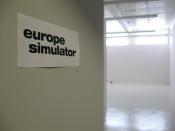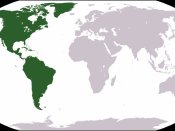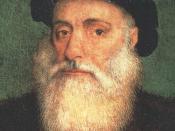European expansion in the Fifteenth and Sixteenth Centuries were led by the three main motives of God, glory, and gold. Books such as "Travels of John Mandeville" and "Travels" by Marco Polo inspired explorers in the centuries to come. The explorations were all made possible by the growth of centralized monarchies during the Renaissance. In the mid-fifteenth century, technology and wealth were at high and the Atlantic Nations of Europe were able to blossom and explore beyond Europe.
Portugal begin the European expansion by sailing the coast of Africa under Prince Henry the Navigator. Prince Henry was seeking to acquire trade opportunities for Portugal along with finding new Christian allies to help battle Muslims and further expand Christianity. In 1498, Vasco da Gama's successful voyage to India for spices and Christians, along with heavily armed fleets and military tactics and naval technology led to Portugal becoming an overseas empire.
The Spanish Empire soon followed along with the Portuguese, looking for a quicker route to the Indies for the spice trade.
The Portuguese, sailed east through the Indian Ocean. The Spanish, while also trying to gain access to the Indies, decided to sail west across the Atlantic Ocean. In 1492, an Italian explorer named Christopher Columbus sailed three ships, the Nina, the Pinta, and the Santa Maria, crewed by ninety men across the Atlantic under the Spanish flag. Although Columbus believed he had reached Asia, he had actually discovered something much greater, the Americas.
Not long after Portugal and Spain began their explorations, France, England, and the Dutch began to make their way east. The European nations began to colonize and expand their territory across Africa, Asia, and the newfound Americas. Colonies and trading posts turned into great cities like present day Calcutta. The bitter rivalries of nations not only...


